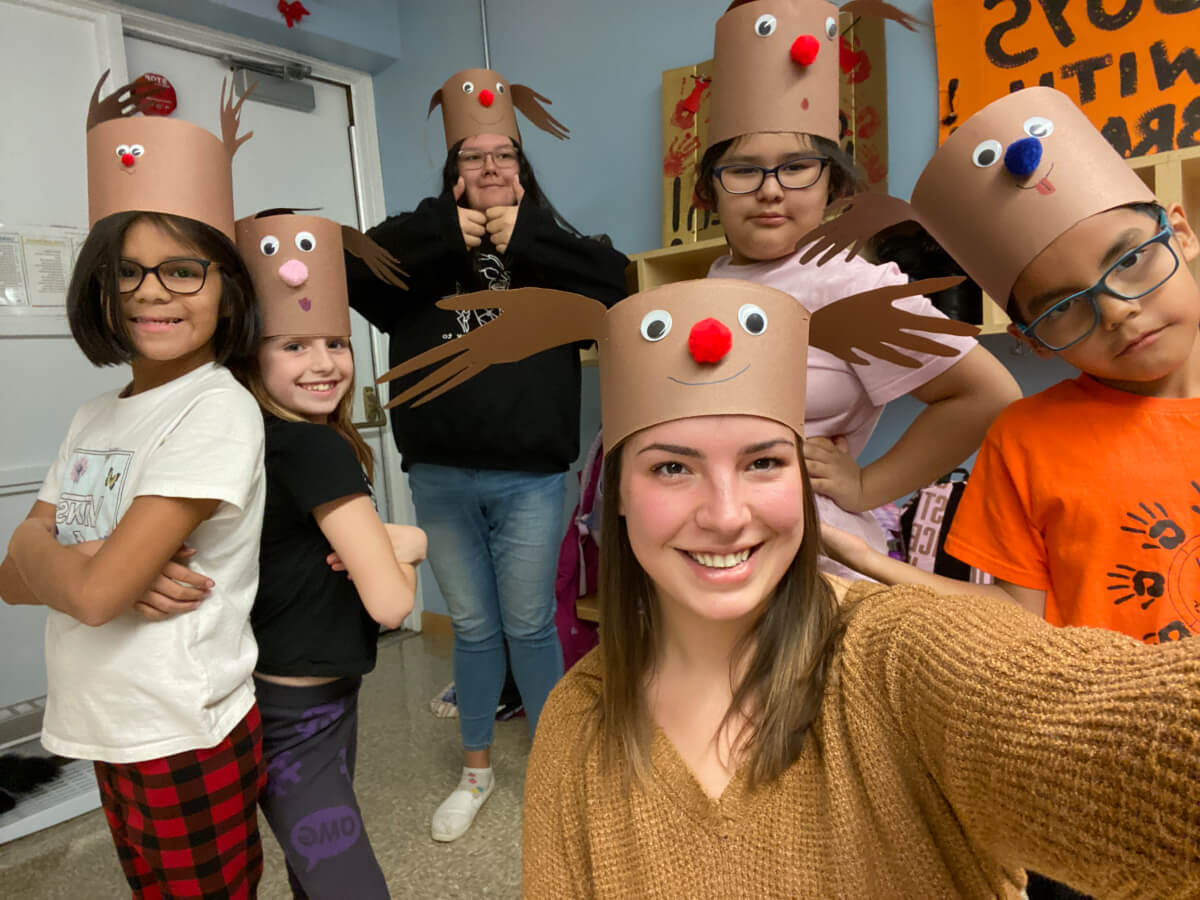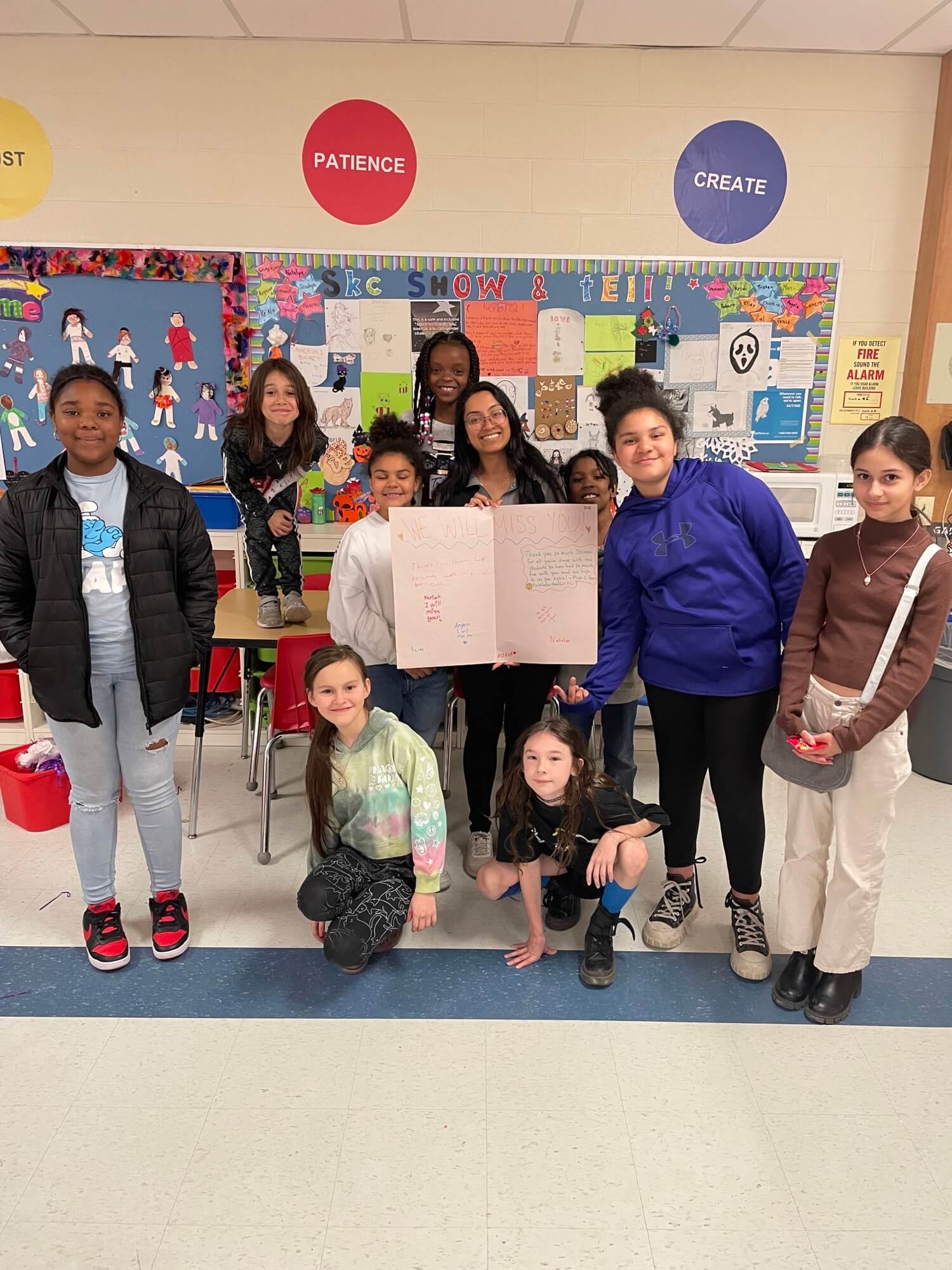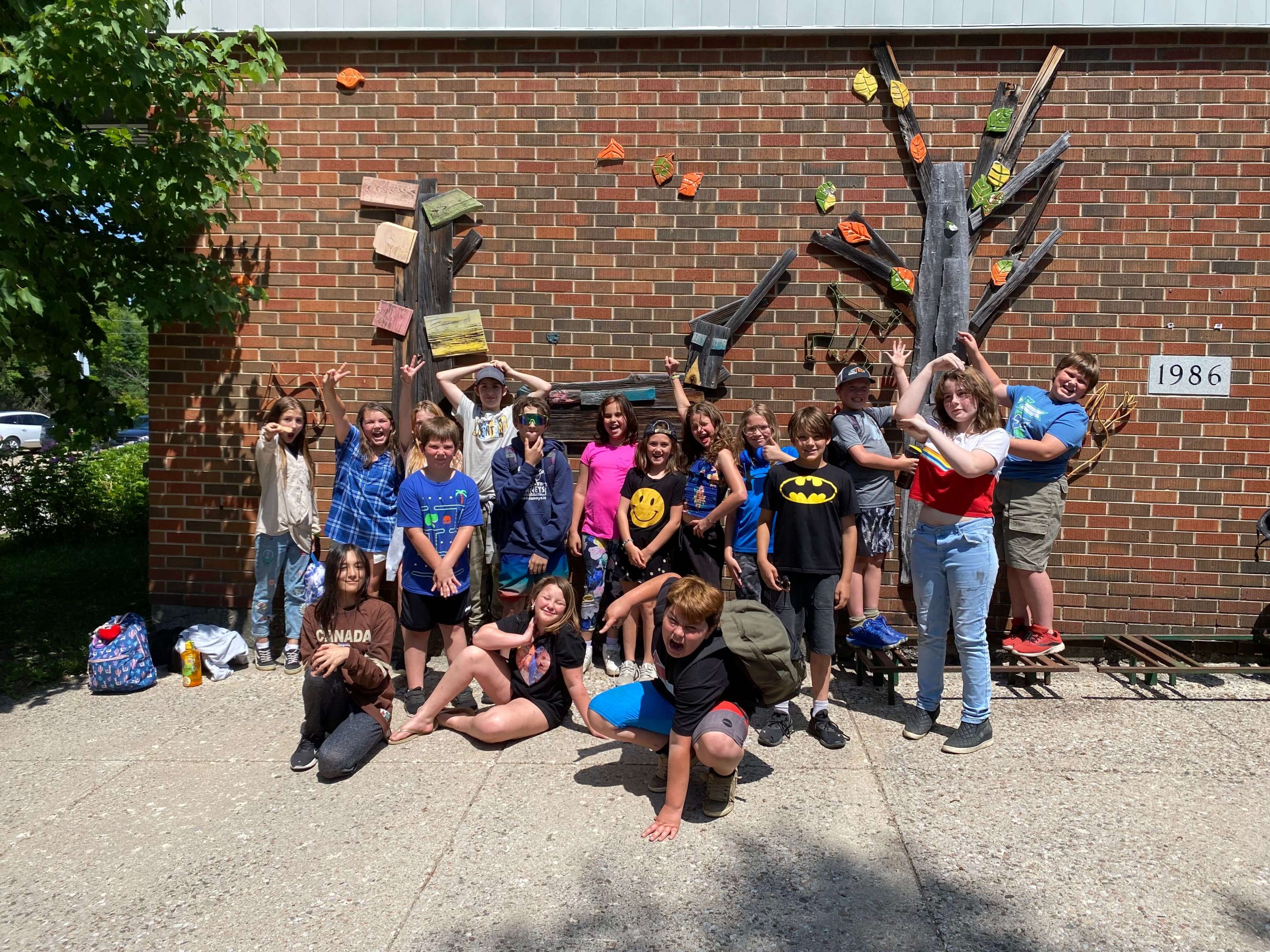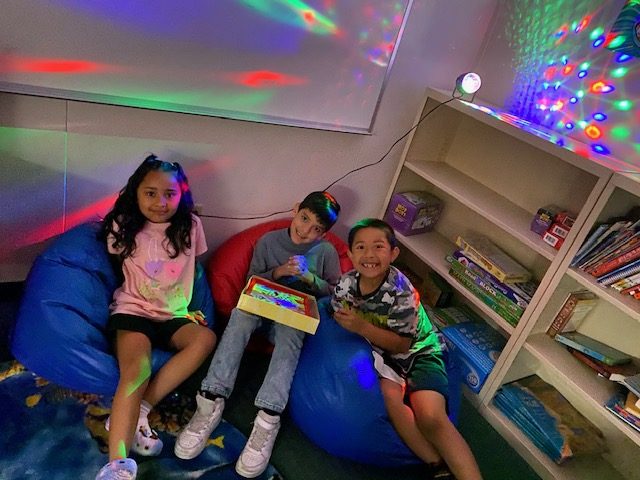Biwaase’aa consists of four main components: After-School Program, In-School Program, Food Security/Nutrition Program and the Little Eagles Mentorship Program. The following is a summary of the year’s events from September 2021 to August 2022 for the St. Vincent school.
We continued to work using modified programming last year due to the Covid-19 pandemic and the fluctuating rules regarding the management of the pandemic. At the start of the school year, all of our Youth Outreach Workers (YOW) were trained or retrained in first aid/CPR, safe food handling, mental health and High-Five training. Other training included Covid-19 and PPE training, program manual reviews, code of ethics discussions, health and safety, anaphylaxis, school policies, confidentiality, time management, bundle teachings, medicine wheel teachings, Shannon’s Dream, Jordan’s Principle, healthy menus, Metis orientation and Indigenous wellness during a pandemic.
Biwaase’aa is a wholistic program designed to increase life skills of Indigenous children, youth and their families through academic achievement, emotional and social development, cultural awareness and nutritional support. The Biwaase’aa program is inclusive of all students (Indigenous and non-Indigenous) in Thunder Bay. In-school programming is delivered by traditionally knowledgeable YOWs under the supervision of the Biwaase’aa Program Supervisor, who in turn works under the supervision of Shkoday’s Program Director. Part-time After School Assistants (ASA) usually work with the YOWs on a daily basis to deliver our after-school programming. Due to Covid-19, we refrained from hiring ASA workers for each school since our after-school programs were delivered virtually for most of the year.
After-School Program
The Biwaase’aa After-School Program was significantly modified through part of this year due to Covid-19 restrictions in the schools and concerns about mixing student cohorts at the end of the day. Up until March break, instead of in-person after-school programming, our YOWs used online workshops and meetings with students, made wellness phone calls and assisted in delivering food hampers and gift cards to the families of the children and youth who would normally attend programming. We know that some of the families we supported with food had up to eight people in their household. After March break all our after-school programs ran as intended, with
youth attending in-person. Unfortunately, however, during the 2022 calendar year, we only had a consistent presence in six of our schools due to losing staff who took higher paying jobs or other personal reasons. One staff went off on maternity leave and two others were off on medical leave, both of which were extended on a month-to-month basis. We were not able to replace those staff due to a lack of applicants. For St. Vincent School, we did have to replace the original worker so there were a few weeks where programming was part-time.
In-School Program
The Biwaase’aa In-School Program provides the consistent presence of Indigenous YOWs in elementary schools and one high school. The YOWs help foster trust, rapport, and security within Indigenous students. This makes for a more comforting and familiar academic environment which increases student success and achievement. This is done through YOW role modelling/mentorship, literacy and numeracy support, cultural teachings, and presentations, pow wows and feasts, parent/caregiver engagement, and cultural outreach services, and attendance at community events. This year we had to sometimes modify how we delivered the In-School Program due to Covid-19. That said, we made sure the same principles were applied, such as role modelling. Our YOWs created teaching videos to supplement or replace in-person teachings when necessary and, for the most part, prior to March break. Our YOWs also virtually attended classes at times at the teachers’ urging as to increase both attendance and participation. Where we previously had YOWs visit schools other than the one for which they were assigned, this year we did this virtually with each school-assigned YOW doing introductions for videos featuring YOWs who worked elsewhere. After March break we returned closer to normal with our YOWs doing in-person presentations.
Parental Engagement
Parental engagement usually happens as a part of our structured activities that are planned as part of our After-School Program. Given the restrictions in place due to Covid-19, we were not able to hold many structured activities, therefore, parental engagement largely took the form of making wellness checks over the phone and exchanging emails to provide updates and such regarding in-school programming. Toward the end of the academic year, we were able to do some structured activities, most notably a bowling night that was well attended by parents and their children.
Food Security Program
Providing students with healthy food improves their ability to learn, engage in physical activity, and develop positive habits that aid their growth and development. We did put significant energy toward ensuring our food security program ran in all our schools all year long.
Traditional teachings related to food, hunting and gathering, and harvesting are usually shared with Biwaase’aa participants and their families at our feasts hosted at every school multiple times each year. This year, due to Covid-19, we were not able to host our feasts at the schools. Instead, our Food Security Program provided program participants with food hampers and gift cards.
Food Security Program numbers fluctuated due to in-person learning being suspended in favour of virtual learning at various points during the school year. The manner in which we administered our food security program fluctuated based on in-school versus virtual learning time periods.
Little Eagles Mentorship Program
The Biwaase’aa Little Eagles Mentorship program is a seven-week program incorporating the Seven Grandfather Teachings; Respect, Love, Wisdom, Bravery, Honesty, Humility and Truth. Through traditional teachings, stories, sharing circles and interactions with community leaders and elders, children learn about the importance of cultural identity, values, beliefs and tradition. Children in this program experience improved self-esteem and confidence. They learn life skills that help them deal with racism, bullying and peer pressure. This added support and mentorship helps improve academic performance for those children who have been deemed to require extra attention. During the first part of the year, we modified how we delivered the Little Eagles Program due to Covid-19. YOWs met with 2-4 children each session but had hoped to continue to reach 24 children by the end of the year. Each session had been shortened to ensure we meet our target number. The reason for the smaller number of children per session was so we can follow Covid-19 related protocols. Unfortunately, we had to suspend the program from January to March given the move to virtual learning. The Little Eagles Program does not lend itself to virtual programming.
Little Eagles Program participants are referred by principals and teachers who identify students they feel would benefit from participation in the program. Little Eagles sessions include topics such as hand drum making, drum stick making, ribbon skirt making, beaded earrings, beaded lanyards, drum teachings, moccasin making, rattle making, loom beading, cultural crafts, birch bark baskets and regalia. Traditional games such as lacrosse, “run and scream,” and the “map game” are also featured in the Little Eagles Program. These games enhance the student’s strength, balance, reflexes, hand-eye coordination, accuracy, lung capacity, strategy, intuition and patience, which are skills that the Indigenous hunters and fishermen relied on to feed their communities. Perhaps the most important feature of the Little Eagles Program is the direct mentorship and guidance the participants receive from Biwaase’aa Indigenous YOWs during programming.
Other pertinent Information:
This year our one-to-one interventions with parents ranged from providing student updates, to making wellness calls, to arranging for food hamper delivers. Our one-to-one student interventions had our YOWs moving to and from virtual to in-person formats. Virtual learning formats often required exclusive one-to-one interactions with students whereas in-person learning was more class orientated with less one-to-one teaching. Our YOWs also engaged in one-to-one interactions with students as per teacher identification of struggling students or when the students sought out our YOWs independently.
St. Vincent school held their first Powwow this year. The Biwaase’aa YOW coordinated the event with students, the Principal, Ojibwe Language Teacher and family members. To start off the Intertribal Powwow, the Emcee announced that Grand Entry would start the festivity with dancers making their way into the gym dancing to the music of the drum and singers. Dancers came from various First Nations and have varying traditions which makes this an Intertribal Powwow. The Principal welcomed more than 350 people to this experiential learning celebration and encouraged students and family members to learn from the dancers and emcee who explained the type of dance, regalia and powwow protocols while dancers demonstrated the steps and encouraged attendees to learn and participate. Afterwards teachers, students and family members indicated how much they enjoyed and how much they learned about honoring the Indigenous culture and traditions through the powwow. Many students and family members are looking forward to next year’s powwow.



















